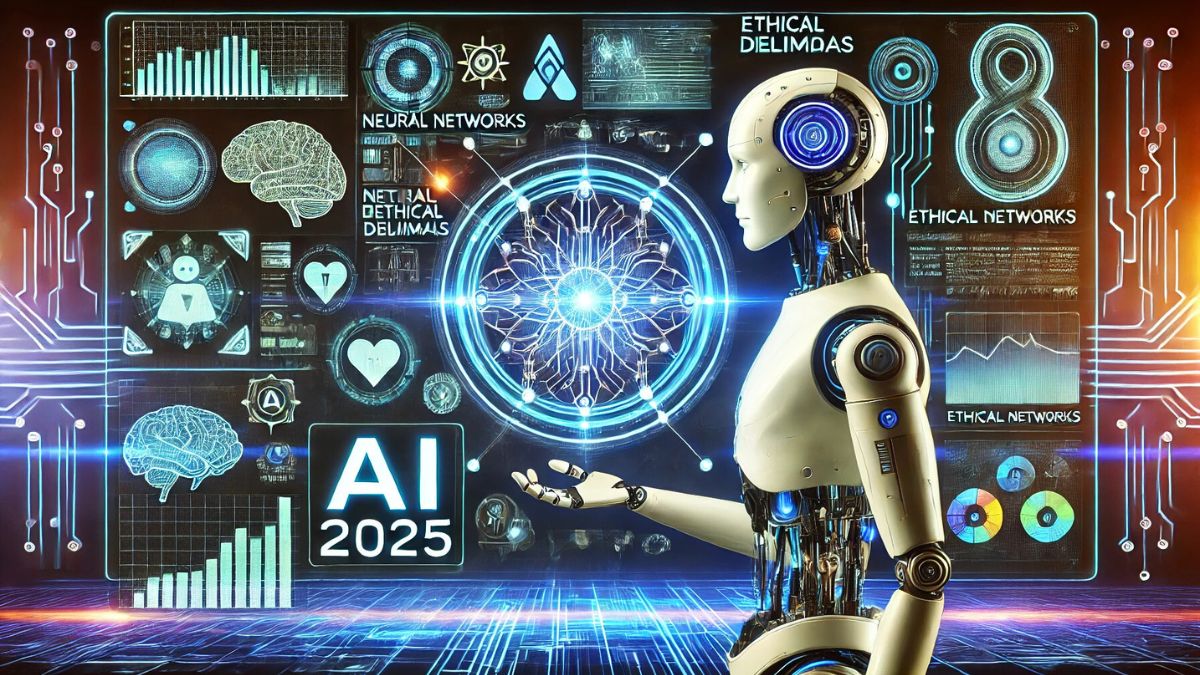Artificial intelligence (AI) continues to dominate headlines in 2025 with is groundbreaking advancements, ethical challenges and real-world applications shaping the future. From next-gen AI models to transformative healthcare innovations, here’s a comprehensive roundup of the most exciting AI news this week. Whether you’re a developer, tech enthusiast or business leader, this update will keep you ahead of the curve.
OpenAI’s GPT-5: The next leap in Artificial Intelligence
OpenAI has officially unveiled GPT-5, the highly anticipated successor to GPT-4. Early adopters report that GPT-5 offers unprecedented contextual understanding, real-time learning capabilities and the ability to handle highly complex tasks like advanced coding, scientific research and even creative storytelling.
Why it matters: GPT-5 is not just an upgrade—it’s a paradigm shift in how AI can assist professionals across industries, from software development to content creation.
Google DeepMind’s Gemini 2.0: Redefining Multimodal AI
Google DeepMind has launched Gemini 2.0, a massive upgrade to its multimodal AI system. Gemini 2.0 can now process text, images, video and audio with near-human accuracy, making it a powerful tool for industries like entertainment, education and healthcare.
Why it matters: Gemini 2.0’s ability to seamlessly integrate multiple data types positions it as a frontrunner in the race for AI dominance, challenging OpenAI’s GPT-5.
NVIDIA’s Blackwell Ultra: Powering the AI Revolution
NVIDIA has unveiled its latest AI chip, the Blackwell Ultra, designed to handle the most demanding AI workloads. With 10x faster processing speeds and 50% lower energy consumption compared to its predecessor, the Blackwell Ultra is set to revolutionize industries like autonomous vehicles, robotics and generative AI.
Why it matters: NVIDIA’s advancements in hardware are critical for enabling the next wave of AI innovation, making powerful AI tools more accessible and efficient.
The Rise of AI Regulation: Governments Step In
As AI becomes more pervasive, governments worldwide are introducing stricter regulations to address deepfakes, misinformation and data privacy.
This week, the European Union passed the AI Accountability Act, requiring companies to disclose AI-generated content and ensure transparency in AI decision-making.
Why it matters: These regulations aim to balance innovation with accountability, ensuring AI is used responsibly while minimizing risks to society.
Microsoft’s AI Copilot 2025: Smarter Than Ever
Microsoft has rolled out Copilot 2025, the latest version of its AI-powered productivity tool. Integrated into Windows 12, Office 365 and Teams, Copilot 2025 now offers real-time collaboration features, predictive analytics and personalized task management.
Why it matters: With over 2 billion users now leveraging Copilot, Microsoft is setting the standard for AI-driven productivity in the workplace.
AI in Healthcare: Personalized Medicine Takes Center Stage
Researchers at MIT and Stanford have developed an AI system that can predict individualized treatment plans for patients with chronic illnesses. By analyzing genetic data, lifestyle factors and medical history, the AI provides tailored recommendations that improve outcomes and reduce costs.
Why it matters: This breakthrough marks a significant step toward personalized medicine, where treatments are customized for each patient’s unique needs.
AI Assistants: DeepSeek and the Evolution of Everyday AI
AI assistants, including advanced models like DeepSeek, have become more sophisticated and integrated into daily life. In 2025, these assistants are not just answering questions—they’re managing schedules, providing emotional support, and even collaborating on creative projects. With improved natural language understanding and emotional intelligence, AI assistants are becoming indispensable companions for both personal and professional tasks.
Why it matters: As AI assistants evolve, they’re transforming how we interact with technology and making it more intuitive, personalized and human-centric.
AI and the Future of Work: Upskilling in the Age of Automation
As AI tools like GPT-5 and Gemini 2.0 become more advanced and the conversation around AI and jobs is intensifying. While some roles are being automated, new opportunities are emerging in AI ethics, prompt engineering and AI-human collaboration.
Why it matters: Upskilling and reskilling will be critical for workers to thrive in an AI-driven economy.
What’s Next for AI in 2025?
The AI landscape in 2025 is evolving rapidly. Here are the key trends to watch:
- AI-Powered Creativity: Tools like GPT-5 and Gemini 2.0 are enabling artists, writers, and designers to push creative boundaries.
- AI in Climate Solutions: AI is being used to optimize energy consumption, predict natural disasters and combat climate change.
- Quantum AI: The integration of quantum computing with AI promises to solve problems that are currently unsolvable.
Why This Matters for You
AI is no longer a futuristic concept and it’s a reality that’s transforming industries, workflows and everyday life. Whether you’re a developer, business owner or tech enthusiast, staying informed about these developments is crucial to staying competitive.
What do you think about this week’s AI news? Are you excited about GPT-5, NVIDIA’s Blackwell Ultra or curious about AI’s role in healthcare?
Share your thoughts in the comments below, and don’t forget to enable our Notifications feature for weekly updates on the latest in AI and tech.
Thank you for reading.

